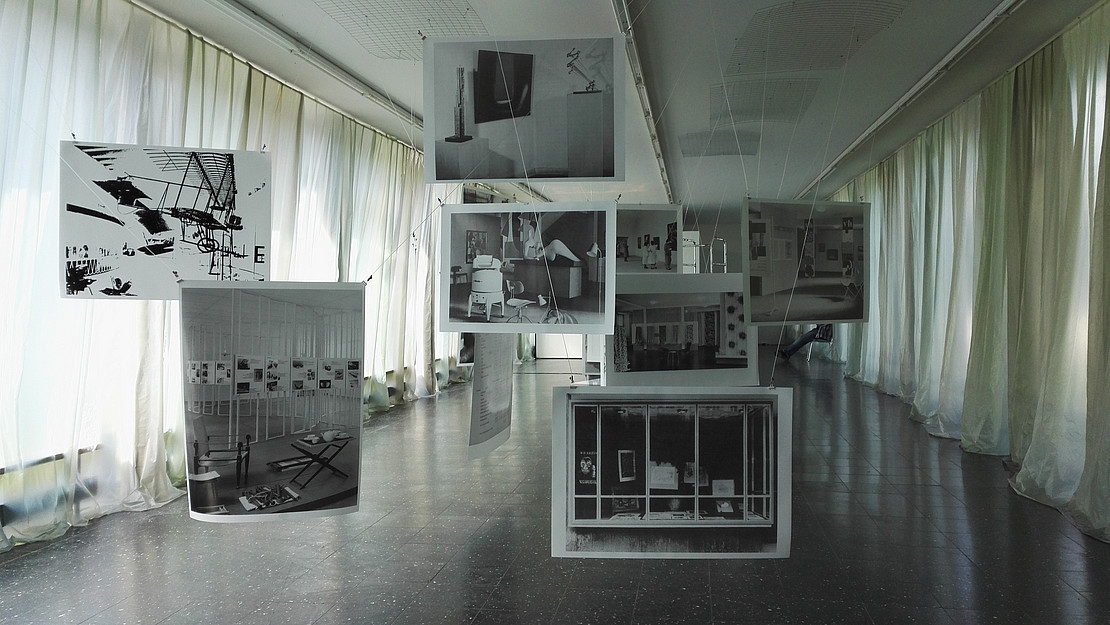Study structure
The content on this page was translated automatically.
General
The Master's program in Art History covers a broad spectrum of subject areas in art history, which can be dealt with in research- and practice-oriented courses, among other things, and, last but not least, can be linked to experiences abroad. Students have the opportunity to choose their own thematic focus and to benefit from the diverse research profiles of the teaching staff.
Module overview
Module 1 focuses on linking theoretical knowledge with curatorial or artistic practice. Among other things, contacts to the diverse Kassel museum landscape or the proximity to the practical courses of study at the Kunsthochschule in the context of cooperative project seminars are used in the courses. The focus is on the application of the course content to typical fields of activity in the cultural sector. These include, above all, the handling and verbalization of works of art, the reflection of perceptual processes, the conditions of artistic production, and the examination of exhibition discourses and their criticism.
Module 2 is dedicated to research practice: students carry out their own research project by, for example, identifying current research gaps in art studies and working on them in a planned and critical manner. In the process, students practice key skills such as project conception, researching and contextualizing specific topics, and, last but not least, presenting their findings in writing as preparation for the academic enterprise.
Module 3 focuses on deepening knowledge of art theory. In courses of philosophy on different positions of aesthetics, fundamental questions on the definition and interpretation of art are deepened. In doing so, the students consolidate important cross-epochal knowledge on questions of aesthetics and its development in the respective art-historical context.
In this module, students deal with the history of exhibitions and the complex conditions and possibilities of curatorial action in the past and present. Reflection on the interactions between the actors involved, such as exhibition venues, the art trade, curators and the public, plays a central role and is also dealt with in relation to the problems of later professional life.
In Module 5, artistic design processes are considered in their effect as knowledge transfers. This is done on the basis of larger knowledge contexts of art history such as art centers, schools, or media phenomena, and on the basis of interdisciplinary courses that enable reflection on the subject of art studies in exchange with other departments of the university. In addition, practice-oriented courses and a semester abroad offer the opportunity to broaden the horizons of the course.
The examination of art historical phenomena in international comparison is the focus of the sixth module. Within the framework of excursions and the intensive examination of buildings and works of art in other places and their associated cultural landscapes, this approach is also implemented in a practice-oriented manner.
You will complete your master's degree program by submitting your master's thesis as an independent scientific development of a topic and defending the research results in a colloquium.
Explanation of the study and examination achievements
In order to successfully complete the Master's program in Art Studies, students must complete various forms of coursework and examinations. In addition to the classic formats of the presentation, protocol or the written exam, there is also an excursion presentation and project work, which is usually developed in a group, presented publicly in the form of an exhibition or publication and documented by a project report. Essential for the development of one's own competencies are the term papers, which, with a length of 15-20 pages, demand an intensive examination of the respective topic.
Academic advising M.A. Art Science
| Contact persons | Contact details |
|---|---|
Dr. Susanne Märtens | Menzelstr. 13-15 Room 3320/Südbau Phone: +49 561 804 5403 |
